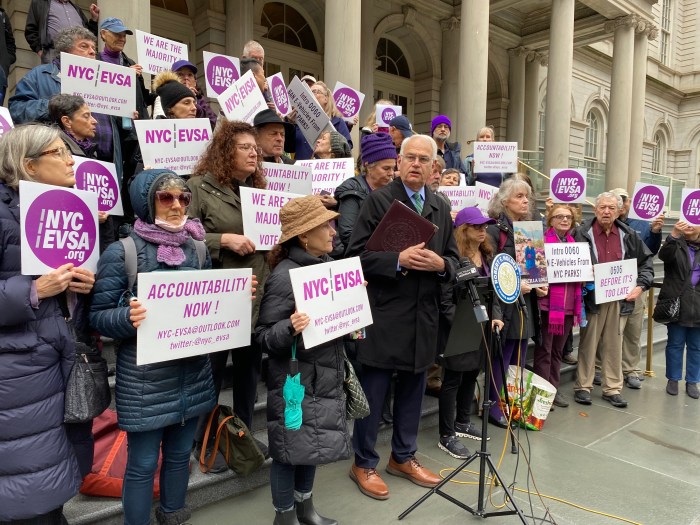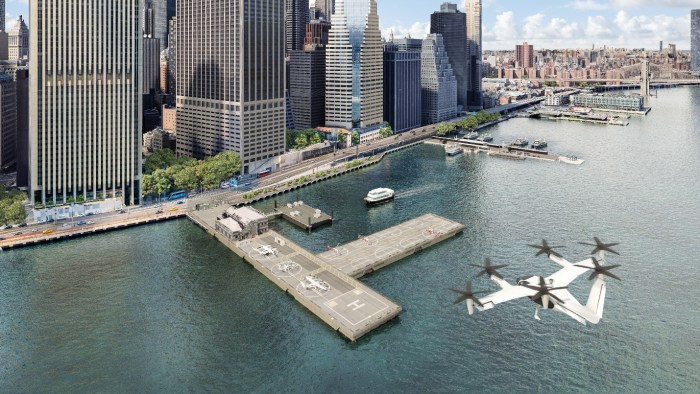
Faced with mounting deficits, unpopular fare hikes and uncertainty from Albany, the MTA found itself at odds on Monday over how to handle the authority’s budget crisis.
Board members explored delaying a vote on the MTA’s proposed $17 billion budget for 2019, which assumes a fare and toll hike and outlines some service or service-related cuts in order to help stabilize its finances for the next year. MTA officials have warned that without new sources of revenue, fare and toll hikes are necessary to avoid draconian cuts to subway and bus service.
“Without additional reoccurring revenues, it’s either going to be service cuts, it’s going to be reductions in force, or we’re going to need the tooth fairy,” said MTA CFO Robert Foran during the board’s finance committee meeting.
Board members also argued that it was difficult to approve a budget without seeing what new sources of money might come from Albany lawmakers, via congestion pricing or taxes. The state’s legislative session doesn’t begin until January and Gov. Andrew Cuomo has expressed opposition to the fare and toll hikes, they noted.
“[There’s] a lot of anticipation about what the state is going to do this year in the budget — congestion pricing, millionaire’s tax, all of the above — but no knowledge yet,” said MTA board member Polly Trottenberg, the city’s commissioner of the Department of Transportation.
Trottenberg and others on the board supported a resolution put forth by fellow board member Veronica Vanterpool calling for the MTA to better align its fiscal year with Albany’s and the city’s by 2020.
The board is currently considering two fare hike proposals to help close budget gaps: The first option would keep the $2.75 subway and bus fare but eliminate the cash bonus on MetroCards, while a second would raise base fares to $3 with a larger 10 percent cash bonus. Both options would bring in $308 million annually for an authority facing a nearly $1 billion budget gap by 2021.
In addition to the increased fares, the MTA is budgeting for several reductions, including cutting the number of cleanings of subway cars; delaying new Select Bus Service routes; reducing some subway and bus service; and lowering the amount of heat and air conditioning that is pumped into subway cars.
The increases would be the sixth fare and toll hike since 2009. Advocacy groups have rallied against the hikes at every public hearing the MTA has held on the matter thus far. Elected officials protested the fare and toll proposals Monday evening along with students and members of the Riders Alliance outside of a Brooklyn fare hearing held at Long Island University.
“Just last week my A train was delayed by 20 minutes and by the time it crawled to Port Authority, I was 30 minutes late to work,” said Mitchell White, 25, who lives in East Flatbush. “I get paid by the hour; every hour that I am not at work, I don’t get paid for that.”
MTA board members have sympathized, agreeing another hike would be too much for riders to bear after declines in subway and bus reliability.
“For the last couple of years I’ve expressed grave concerns over another fare increase,” said MTA board member Mitchell Pally. “I think now is the wrong time to do it, and all we do is continue to do it over and over in the same way.”
The MTA board is still scheduled to vote on the adoption of the budget Wednesday.
“The discussion we heard today is about not trying to presume that fare hikes are going to take effect without finishing the fare hike hearings, which is really critical . . . but also making sure that there is a realistic supposition of what funding might take place,” said Lisa Daglian, the executive director of the Permanent Citizens Advisory Committee.
Her committee has accepted that fare hikes would be necessary, but is against any reduction in service.
“We can’t go back to the bad old days,” she continued, “so it’s really critical that we keep the system running and that we keep things at a service level riders need.”
With Sushmita Roy
































